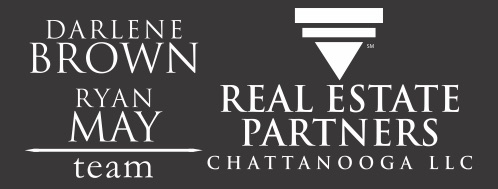Image caption: The Community Foundation of Greater Chattanooga’s staff. Pictured, from left to right: Keely Gilliland, Marisa Ogles, Catherine Coker, Robin Posey, Dr. Stephanie Young, Chris Adams, Maeghan Jones, Ashley Bice, Dwayne Marshall, Woodson Carpenter, Rebecca Underwood, Caroline von Kessler, Rebekah Gouger. Photo by Matt Reiter.
With Giving Tuesday this week, we’re reminded how perennially busy the holiday season is for the philanthropic/nonprofit sector, as individuals and businesses focus intently on getting donations in—as a gesture of community goodwill and socially-conscientious alternative to material holiday gift giving, but also for tax deductions.
Caroline Von Kessler, Vice President of Philanthropy for the Community Foundation of Greater Chattanooga, manages relationships with individuals, families, and businesses wanting to make an impact through CFGC’s Donor-Advised Funds (DAFs). TREND sat down with Von Kessler to get her download on what’s current in the charitable giving space here locally.
TREND: What can you tell TREND’s mostly business readership about the post-pandemic giving climate here in Chattanooga?
Von Kessler: While the stock market in 2022 hasn’t been kind to a lot of CFGC’s own investments nor those of others, here in Chattanooga we have not seen a significant drop-off in giving. Chattanooga continues to be incredibly generous.
The Community Foundation has about $210 million under our management right now, about $80 million of which is in Donor-Advised Funds (held by individuals, who then grant them back out to community causes). And last year, out of that 80 million in DAFs, there was close $ 17 million that was granted out, which is pretty significant—that’s 3-4 times above what a 4.5% endowment draw would be.
TREND: Are there any specific issues or causes that attracted more local generosity in 2022?
Von Kessler: We work with our donors to provide information, if they’re interested in a certain subject, we can do some due diligence for them on nonprofit organizations to consider.
A lot of the giving out of our DAFs goes toward education. “Public and societal benefit” is another one, and for many people that means crisis intervention—housing and homelessness, immigrant/refugee services, help for Ukraine/Ukrainians. Religious giving continues to be in the top-five for Chattanooga, as well as health. In 2022, we definitely saw an uptick in support for both women’s health, and access to reproductive choice and related services for women. Disaster relief is another popular giving area: Time and again, Chattanoogans demonstrate a willingness to step up when there’s a crisis like a tornado or flood. Donations toward environmental causes are also in the top five or six.
We also try to have those conversations about, what’s the long-term opportunity for our donors to mitigate systemic challenges like intergenerational poverty. A lot of our donors are very interested in balancing their gifts between the more immediate community needs, versus where can one step in now and lay the groundwork for long-term, permanent progress on our most pervasive challenges. For example, we’ve currently got a very positive, strategic initiative on eviction prevention that’s garnered support from the City, other nonprofits, and some of CFGC’s own money to help keep families in place as they work through the economic damage caused by the pandemic.
TREND: What advice would you give business owners or executives on assessing how to focus their charitable giving in such a way that it aligns with or makes sense, given their business goals or company vision?
Many businesses here in Chattanooga are private and family-owned, and several DAFs here at CFGC are business-managed DAFs. We give pretty much the same counsel to these organizations that we give to our families: It takes self (or team) reflection to really drill down into, what are your company values? We encourage businesses to go through that process, write it down. The Foundation can help businesses to articulate and facilitate that: What do you want your legacy to be?
These facilitation exercises aren’t rocket science, but it’s great to think on your values as a company, as well as those of the individuals who work at your company. Where does their passion lie? If you take the time to write down your statement of values, you can always update it over time as you reference back to it, but it’ll give you that baseline from which to begin a discussion about where your giving should go.
Businesses also need to listen to their nonprofit partner. A lot of times, perhaps what you think they need may not be what they actually need. Finding that best fit for a true partnership, it’s good to have a conversation with a nonprofit before making the financial commitment. Learn who they are, what they’re doing, what their aspirations are, and what resources they might need to achieve those aspirations. These simple questions can shed a lot of light on where a nonprofit is going, and where they need the most investment.
I know for a long time, business-driven giving was very project based; that’s shifted over the last decade to where there’s a little more of a foundation of trust around where the gift is going. As a result, funding to support a nonprofit’s administrative overhead or operations has increased. After all, staff salaries or human capital is who’s delivering on the mission, and the most connected to it. It’s also usually a nonprofit’s largest expense.
I’d also suggest businesses not just think about a “one and done,” but more about a long-term partnership with your preferred charity. Meaning, giving that spans more than three years; five to seven years is ideal. If you really want to affect change within an organization and be a partner, like any real investment it should encompass a longer-term commitment.
Interested in partnering with the Community Foundation to develop an intentional and impactful philanthropic giving strategy for your company? Learn more at www.cfgc.org/professional-advisors.

